A modern reboot with purpose.
View this video on YouTube
There are probably more reboots of old projects than there are completely new queer projects every year.
From Jurassic Park to The Addams Family, there are reboots of things that aren't even a decade old, or that anyone even asked for, but what truly qualifies as a good reboot? Does it have to surpass the original or honor it? Does it have to go its own path, or should it try to do something new with a familiar concept?
There are a million different ways for a reboot to be judged good or bad, but it's clear that Amazon Prime's A League of Their Own is an effort to update a classic to bring it closer to the real story, one filled to the brim with queerness.
A wartime study in discrimination.
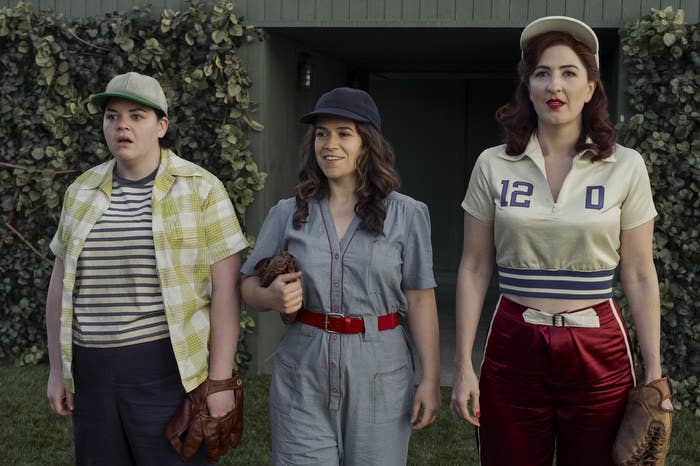
The series is set during World War II, and the landscape of 1940s Chicago is rife with change and the resistance to any form of it. When a local businessperson tries to use the first women's baseball league to draw a crowd, women from all across North America scramble to join this wave of change.
Carson Shaw, played by Abbi Jacobson, introduces us to her world through the societal standards she clearly doesn't fit into or enjoy. She is escaping the suburban life, with her husband away at war. After she joins the team, she and her teammates find their excitement watered down by the resistance from the white men around them, who believe that people will show up only if the women look attractive — illustrating the core struggles of this show.
When Max, played by the brilliant Chanté Adams, a Black Chicago native, tries to join the women's team, she's instantly turned away. The racism, anti-gay bias, and sexism that permeate this era are not an afterthought in this series and are constantly thrown in the protagonists' faces, for better or worse.
A show dipped in a modern POV.
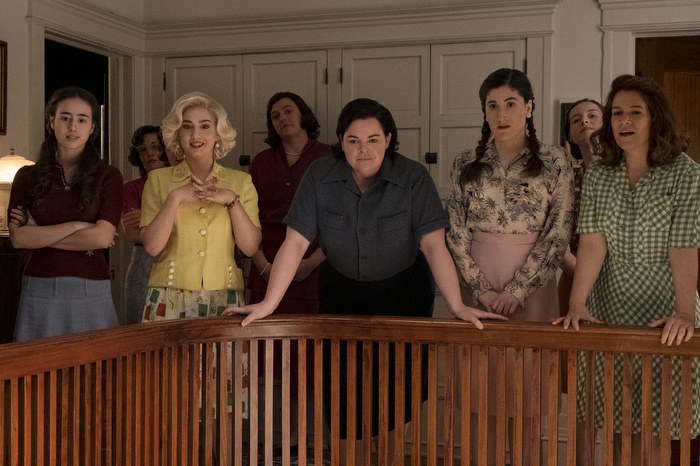
There are some moments early in this reboot that feel as if they should take place in modern times, despite the setting and the music, both of which are firmly planted in the wartime era. The dialogue often feels more akin to Jacobson's work on Broad City, which, while entertaining, takes you out of the era the show is trying to replicate.
These fleeting moments of modernity come and go with the whiplash-paced fervor of the plot as it tries to outline the backstories of almost a dozen characters while giving them time to play out their plot developments.
These first few episode flaws are ironed out as the central plots take center stage, but when the cast and story finally merge to work together glowingly, it just makes you wish it had happened sooner.
While the story isn't revolutionary in rewriting the genre, it moves it forward through a gloriously queer cast and amazing performances.
A fantastic cast of home run hitters.
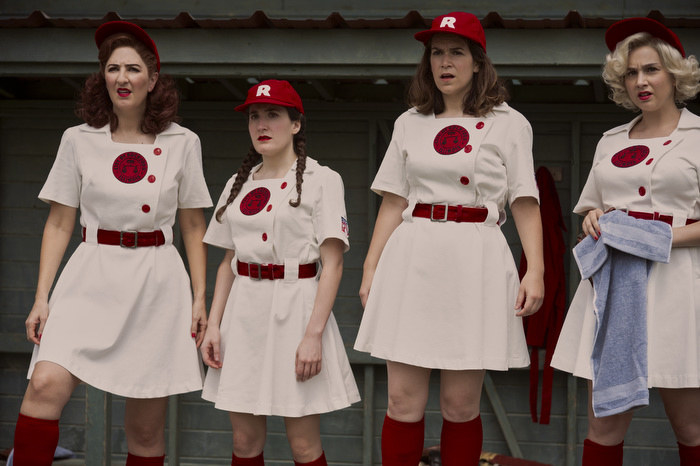
There's a huge number of colorful characters to get to know in A League of Their Own, which fills out its baseball roster with oddballs and weirdos looking for baseball glory.
Jacobson's Carson is the anxious yet determined heart of the team, who helps drive the team's hopes and provides some much-needed conflict with D'Arcy Carden's Greta, and their love-hate-love relationship propels the early plot. Kate Berlant, Nick Offerman, Roberta Colindrez, Kelly McCormack, and Melanie Field are among the team standouts who bring smiles to every scene they're in.
Adams as Max plays the most compelling part in the early plot, fighting her family's wishes that she run their family business, hiding her queerness, and trying to make her baseball dreams come true. Max is far and away the best part of the show, and could have the entire hour of each episode to herself and probably make it look easy.
Gbemisola Ikumelo as Max's bestie Clance is a constant delight, as is her family, with their scenes being some of the best in the show. The two besties bring some of the most interesting and dramatically compelling tension to help the show soar when it needs it most.
After a wobbly start, A League of Their Own begins to soar.
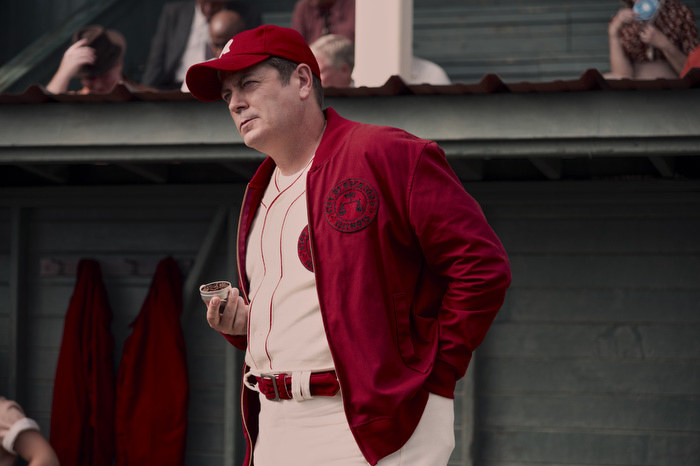
Discrimination is a big part of this show, something it tries to make clear very early on, whether or not it always feels necessary. While I'm glad the show doesn't ignore the true-to-life attitude of the era (à la Bridgerton), hard-to-watch moments are sandwiched between other hard-to-watch moments and some lighthearted ones, all of them crammed into fast-paced episodes that whip back and forth.
When the reboot finally stops to take a breath, the glimmering pieces at its core shine brighter than ever, which, thankfully, the show's creators realize and run with. While the supporting characters are wonderfully kooky, the plot works best when they fade to the back and let the amazing core cast take the reins.
After the show sheds some of its early habits, its greatness flourishes. At its core, this series is a very queer look at a group of people trying to rise above ignorant minds. It's clear this outing is its own venture, rooted firmly in an attempt to tell the queer stories of the women who inspired the original movie.
A reboot worth watching.
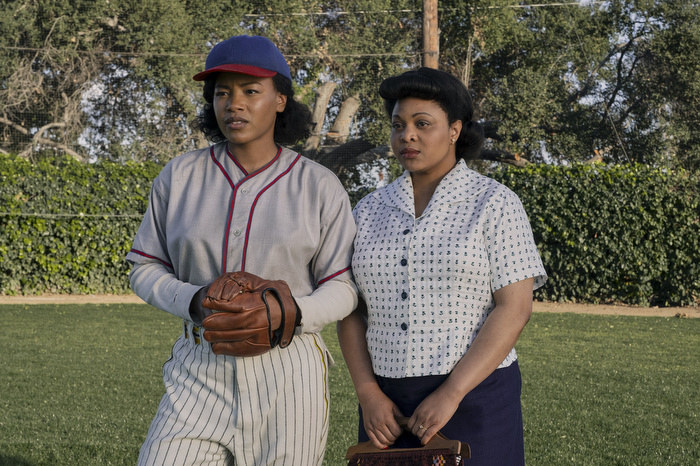
While dozens of TV shows fight for your attention weekly, few have the heart of A League of Their Own.
Despite its bumpy start, the show has a deeply queer heart, with the queer women at its core demanding and deserving your attention. While the familiar faces of its cast will excite you, it is the newer voices that soar, with performances like Chanté Adams's reaching remarkable levels of greatness.
It’s easy as a queer person to root for queer projects with queer people, but that doesn’t always excuse played-out storylines. This reboot will not break the mold, but it may make a new one.

